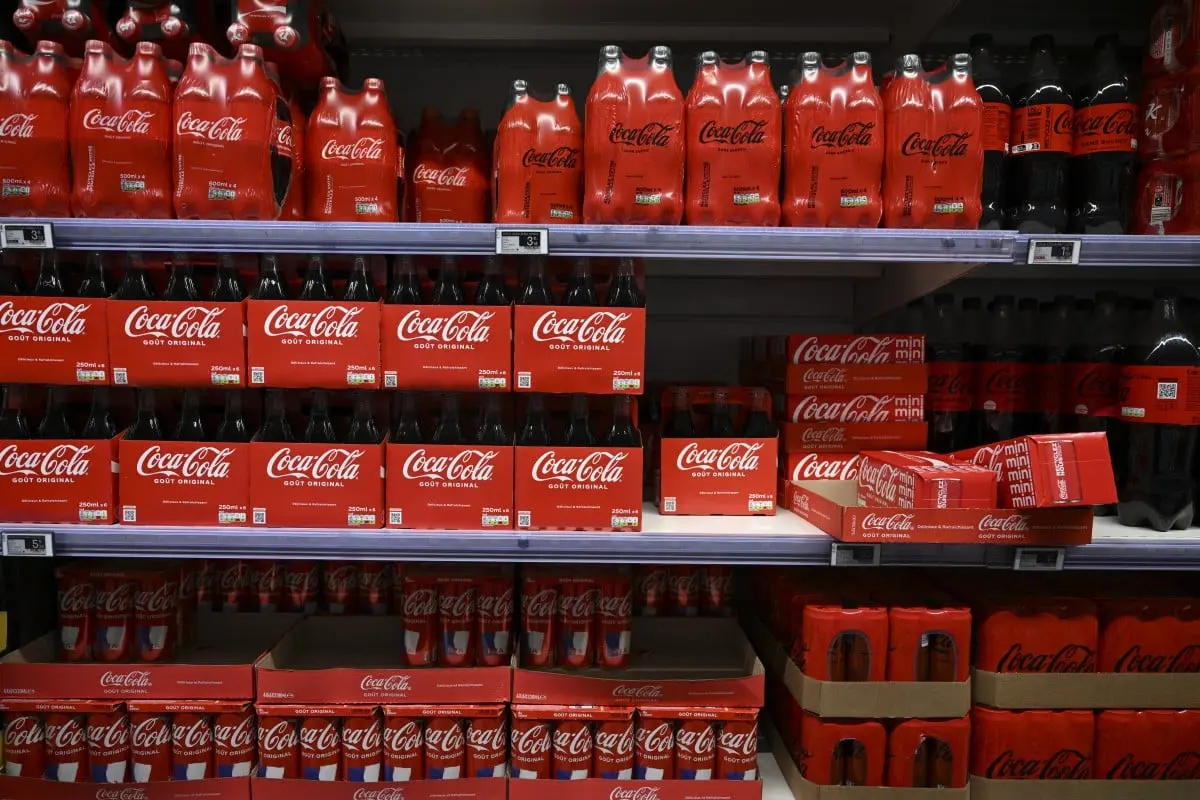On January 26, Coca-Cola’s bottling plant in Europe announced a large-scale recall of its beverage products across Europe due to chlorate, a chlorine byproduct, exceeding the allowable limit. However, the company emphasized that, according to their assessment, the health risk is “very low.”
According to AFP, this beverage recall involves canned and glass-bottled drinks from the brands Coca-Cola, Sprite, Fanta, Fuze Tea, Minute Maid, Nalu, Royal Bliss, and Tropico, which have been on the market since late November. The affected products have production codes ranging from “328 GE to 338 GE.”
In addition to Belgium, where the recalled batches were produced, these problematic batches were also exported to the Netherlands, the UK, Germany, France, and Luxembourg. In the French market, only two batches were affected: Fuze Tea peach-flavored canned drinks with production code 335 GE2 and Coca-Cola Zero Sugar in 1-liter glass bottles with production code 337 GE1.
Coca-Cola Europacific Partners Belgium told AFP: “We do not have exact volume data, but clearly, the volume of affected products is quite significant.”
The company added that most of the affected products that were unsold have already been removed from shelves, and “we are continuing to take steps to recall any remaining products. The company is in contact with local authorities in the relevant markets to carry out the recall.”
The bottling company apologized for the issue and urged consumers not to consume the affected products. These products can be returned to the point of sale for a refund.

The company stated that it had conducted tests at its production facility in Ghent (Belgium) under its control procedures and regulatory compliance requirements, which revealed elevated chlorate levels.
According to Coca-Cola Europacific Partners France, only two batches of products with issues were distributed in the French market: “Fuze Tea canned drink with peach flavor (Production code 335 GE2)” and “Coca-Cola Zero Sugar in 1-liter glass bottles” (production code 337 GE1).
The production codes can be found at the bottom of the cans or on the label of the glass bottles.
According to the French company, analysis by independent experts shows that the likelihood of health risks is very low. “So far, we have not received any consumer complaints related to this issue.”
As of now, the recall does not apply to the French market.
According to the official website of the European Commission, chlorate in food originates from chlorine-based disinfectants used in food processing and water treatment, with drinking water being the main source of chlorate.
According to the European Food Safety Authority (EFSA) Scientific Opinion in 2015, long-term exposure to chlorate in food could pose potential health risks for children, particularly those with mild to moderate iodine deficiency.
However, EFSA experts point out that even with higher daily consumption levels, the health risk remains “very low.”




